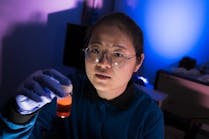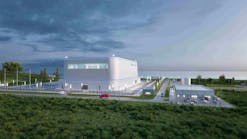Eaton building Switchgear for new University of Michigan Hospital power system
Power management firm Eaton has secured a $16 million contract to design and construct the essential electrical system at the University of Michigan’s new hospital in Ann Arbor, Michigan.
The new hospital, called the D. Dan and Betty Kahn Health Care Pavilion, is a 12-story, 690,000-square-foot facility with beds for 264 adult inpatients. It is expected to open in the fall of 2025 and help alleviate growing patient demand at University of Michigan Health's primary medical facility in Ann Arbor.
Under the deal, Eaton is providing a range of intelligent electrical equipment and turnkey engineering services to create a foundation of safe, resilient and sustainable power at the hospital. The project includes an Eaton-engineered utility substation, over 100 factory-assembled Integrated Facility Systems (IFS) switchboards and Eaton Arc Quenching Switchgear, as well as training for facility operations and maintenance staff.
Read our latest ET Newsletter for stories on Hydrogen, E-Mobility and the C&I Energy Transition
Campus Energy: Boston University hires Schneider Electric to manage Net Zero Building
“Essential electrical systems are the heartbeat of any healthcare operation,” said Justin Carron, Healthcare Segment Director at Eaton. “We’re thrilled to help University of Michigan Health meet its evolving healthcare needs with an approach that prioritizes electrical resilience and a low-carbon future – so the university can continue to focus on providing what matters most: quality patient care.”
The company says its advanced power distribution equipment, back-up power protection solutions and turnkey project will ensure that the facility has all the necessary power whenever required. Its switchgear will significantly reduce incident energy to preserve critical uptime and advance safety, while IFS switchboards will help minimize valuable footprint and installation time, Eaton adds.
According to the university, the new hospital is also on track to achieve the LEED Platinum certification for sustainable healthcare design, with flexible energy systems ready for the future transition to renewable energy sources.





